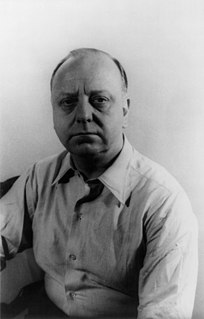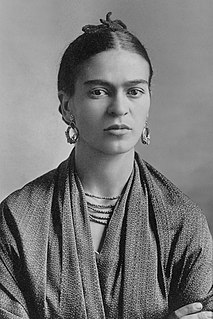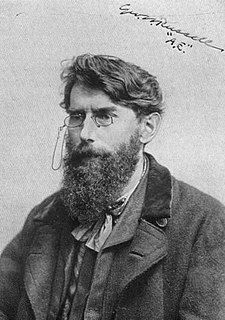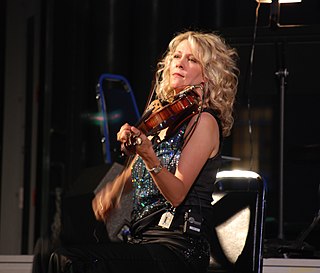A Quote by Virgil Thomson
I got myself into a lovely little shall we say controversy with André Breton, by pointing out that the discipline of spontaneity, which he was asking his surrealist neophytes to adopt, was new for language but something that composers had been practicing for centuries.
Related Quotes
On the other hand, Surrealism has been a part of Romanian literature since forever. Even before Tzara, who was originally Romanian, we had Urmuz, who was a surrealist before the term even existed. During Breton's era too, there was a very active Romanian Surrealist group (Ghérasim Luca, Gellu Naum, etc.) closely related to the French. They had to quit their activities as soon as the Soviet communists took over.
Mozart in his music was probably the most reasonable of the world's great composers. It is the happy balance between flight and control, between sensibility and self-discipline, simplicity and sophistication of style that is his particular province... Mozart tapped once again the source from which all music flows, expressing himself with a spontaneity and refinement and breath-taking rightness that has never since been duplicated.
When, in short, we shall have unlearned everything which has been taught since his [Jesus'] day, and got back to the pure and simple doctrines he inculcated, we shall then be truly and worthily his disciples: and my opinion is that if nothing had ever been added to what flowed purely from his lips, the whole world would at this day have been Christian.
A young man who had been troubling society with impalpable doctrines of a new civilization which he called "the Kingdom of Heaven" had been put out of the way; and I can imagine that believer in material power murmuring as he went homeward, "it will all blow over now." Yes. The wind from the Kingdom of Heaven has blown over the world, and shall blow for centuries yet.
I had been used to improvising and even in the audition I was feeling free to rearrange Aaron Sorkin words a little bit, as lovely as they were. I didn't find out until after I got the part how furious Aaron was at me for doing that. They said, "He was livid. He did everything in his power not to jump down your throat!" But I came to realise that Aaron was writing in metre and the rhythm of the language is very important.
There was always that thing with 'Johnny' - I always saw myself as his writer and PR. But when he got out there, I had no control. His whole thing was going off on those flights of fancy. Going, 'Let's see what we can possibly do that hasn't been done before up here.' And when it works, it's lovely; it's a great night.
Perhaps his gloom was due to his profession, that he lived among fallen empires, and in reading these languages that had not been spoken by the common man in centuries, he had all about him the ruin of language, evidence of toppled suburbs, grass growing among the mosaics, and voices that had been choked with poison, iron, age, or ash.
Perhaps, as we say in America, I wanted to find myself. This is an interesting phrase, not current as far as I know in the language of any other people, which certainly does not mean what it says but betrays a nagging suspicion that something has been misplaced. I think now that if I had any intimation that the self I was going to find would turn out to be only the same self from which I had spent so much time in flight, I would have stayed at home.
D'Alembert was always surrounded by controversy. ... he was the lightning rod which drew sparks from all the foes of the philosophes. ... Unfortunately he carried this... pugnacity into his scientific research and once he had entered a controversy, he argued his cause with vigour and stubbornness. He closed his mind to the possibility that he might be wrong.







































